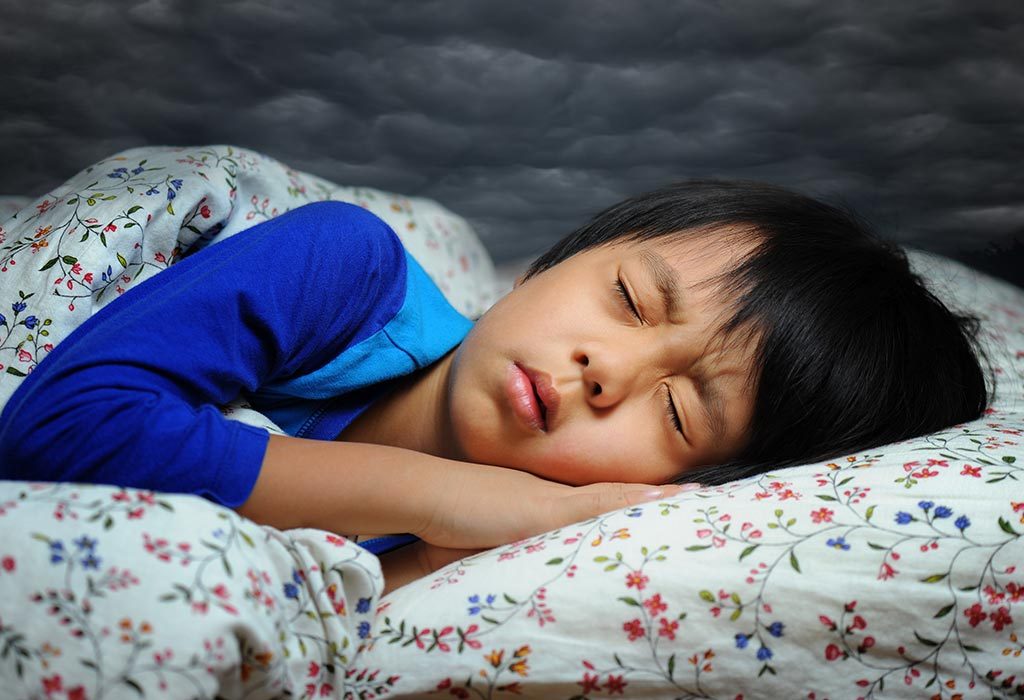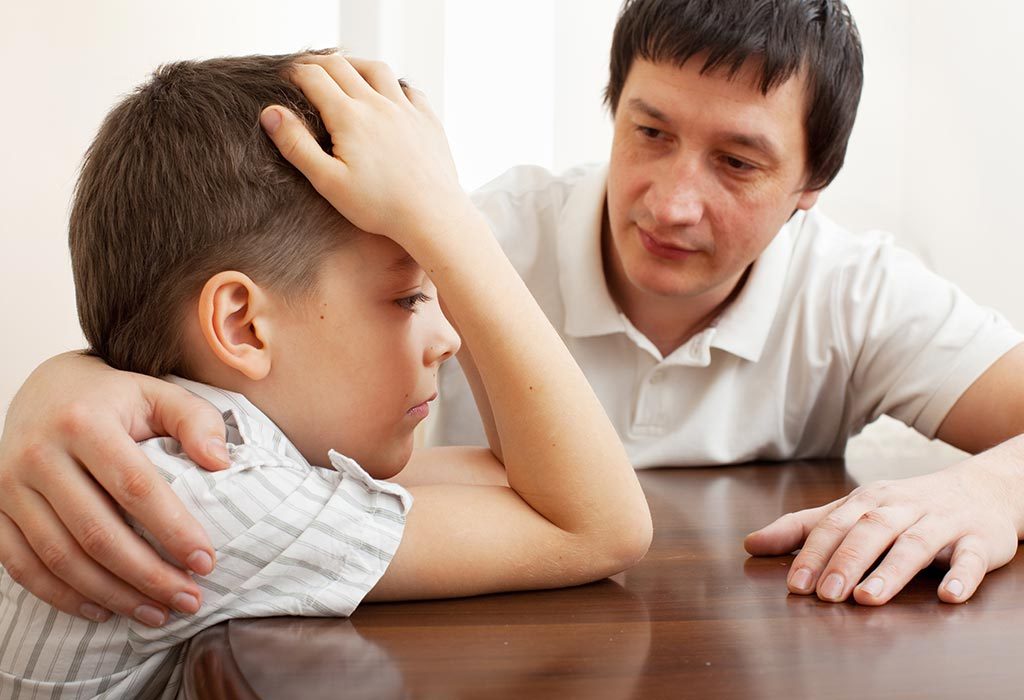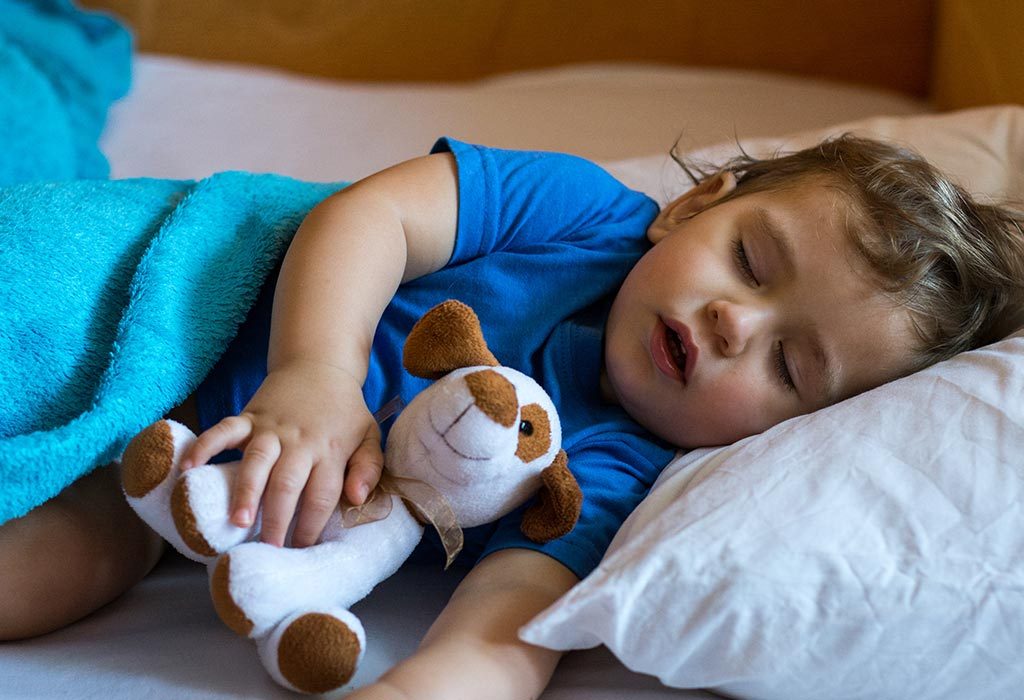Sleep Talking in Kids – Causes and Tips to Deal
As the name suggests, sleep talking – also known as somniloquy- is a disorder in which the person talks in their sleep, either coherently or in gibberish manner. While anyone can have this disorder, it is more common in men and children. It may seem scary at first. However, it is not necessarily a cause for concern. Sleep talking can have various causes, and there are ways to deal with the disorder.
How Common is It for Children to Talk in Their Sleep?
Sleep talking is quite common in older children and can also occur in very young children. Almost as many as half of the kids between the ages of 3 and 10 have been found to carry out conversations in their sleep. Children can be found not only speaking and mumbling but also laughing, crying or groaning in their sleep. This is more frequent when the child is in a deep sleep. There aren’t many harmful connections between sleep talking and child development.
Lack of awareness about sleep talking can cause parents to worry about the mental health of the child if he is found sleep talking.
What Causes Sleep Talking in Kids?
Children sometimes tend to have extreme reactions to certain situations. The following reasons are the most common causes of sleep talking in kids:
- Increased excitement for an event or activity like a family vacation or going back to school could cause the child to speak in his sleep. Worried children can also be found speaking in their sleep. An upcoming test, the guilt of breaking an object or a fight with a really close friend – simple reasons like these can have this effect on children.
- Physical illness could aggravate the child’s speech while snoozing. A child talking in sleep with fever is common.
- An unhealthy sleep cycle can also cause this disorder in kids.
- It could be hereditary. Parents who may have talked in their sleep as children are more likely to pass it on to their own children.

How to Deal With Sleep Talking in a Child
The causes may not seem very serious and do not really need to be worried about too much! There are very simple measures that can be taken by the parents in order to reduce or eliminate somniloquy in their children.
1. A Healthy Sleep Cycle
It is vital to introduce a healthy pattern of sleep in the child’s schedule to make sure it doesn’t hamper his growth, and continues through his teen and post-teen years. Ensure that the child is in bed early and gets at least 8-10 hours of sleep.
2. Avoid Caffeine and Sugar At Night
To restrict or completely eliminate energy rushes at bedtime, avoid providing any form of caffeine or excessive amounts of sugar at night. These can increase energy levels and prevent the kid from sleeping well at night. A glass of warm milk is better, as it helps soothe and relax the child before sleeping.

3. Don’t Try to Wake Him Up
Contrary to instinct, don’t wake up your child from his sleep. Even in this state, he is most likely to follow instructions. Gently guide your kid to calm down and go back to sleep. Waking him up is not hazardous. However, it can make it harder for him to go back to sleep.
4. Support Him When He Worries
Little incidents in their lives can worry children. Speak to your child about things that you think are affecting his behaviour negatively and support him, assuring him that you have his back. Open communication can relieve him of stress and in turn, improve the quality of his sleep too.

5. Arrange for Regular Exercise
Children who exercise regularly are bound to have a tiresome day and in turn, better quality of sleep. Ensure daily exercise that tuckers out your little one so that he looks forward to resting.
6. Make His Bed Comfortable
A comfortable bed harbours good sleep. Use good quality sheets and pillows for your child to make sure he is cosy. Airy sheets and proper ventilation in the room is important for the child to feel satisfied with his bed.
7. Associate His Bed With Only Sleep
An interesting measure is to prohibit any other activity on the bed other than sleeping. This helps the child disassociate the bed with any form of energy-filled activity. The bed is only a place to rest.

A common disorder in children, somniloquy is dealt with quite commonly. There are various causes and even more solutions to the issue. Do not fear any harm to the child. However, the disorder could annoy fellow roommates, and thus, one should make sleeping arrangements accordingly. Get rid of the fear and lack of awareness attached and calmly help your child with the sleep talking.
Also Read: Sleepwalking in Children
















